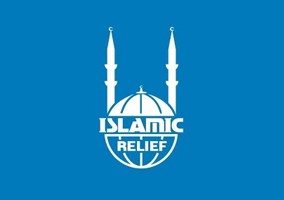Islamic Relief Worldwide (IRW)'s “reputation is on the line” after a series of antisemitism controversies, the person who conducted a review into the charity has warned.
Dominic Grieve, the former attorney general, was appointed to carry out an independent review of the charity’s governance, which was published today.
Grieve’s report also said that some IRW staff had concerns about people still working at the charity, whose activity online and personal associations could damage the organisation’s reputation further.
He told Civil Society News that he believed IRW was seen as an effective and well-managed charity by its delivery partners, but recommended several reforms to improve governance structures which had “not kept pace” with its rapid expansion.
Grieve: Antisemitism controversies could happen again
IRW commissioned the review in September 2020, after two trustees and a senior member of staff were found to have shared antisemitic content online. All three resigned after the content was revealed in the media.
The review was conducted by Grieve with the assistance of Sir Clive Jones.
It cautioned that the charity, which is based in Birmingham and works through a federation of partners in 12 countries including the UK, might face further risks to its reputation.
It said: “During the course of receiving evidence, it was brought to our attention that there are a few members of partner boards who are the subject of concern from others within the Islamic Relief family for alleged personal social media posts or associations outside of IRW.
“I am not in a position in this commission to make any definitive findings in respect of these matters. But if they are correct, it is clear that there are individuals involved with Islamic Relief at partner level who pose potential reputational risks to the organisation.”
According to the report, some staff told Grieve that they "worried" about more revelations damaging to the charity "happening again with a number of limited individuals.”
He confirmed that the charity was aware of these concerns, and said any issues should be investigated and "dealt with”.
Charitable work unaffected
The review stressed that the recent scandals had not affected the charity’s ability to deliver its work.
It said that IRW is “a highly effective charity”, and added: “It is important to understand that there is no evidence whatever that the reputational issues that have arisen over the conduct of trustees has had any link to the way IRW carries out its charitable work.
“IRW has been independently audited in respect of how it spends its funds and how they are raised, to the satisfaction of the Charity Commission as its regulator, and its stakeholders including its bankers and auditors.
“I have heard and seen nothing in this inquiry to contradict this clear conclusion.”
The Charity Commission, which concluded its own inquiry into IRW last week, said that the charity had taken “swift action” against the trustees and staff involved and had made “significant improvements” in its governance.
Grieve said that organisations like the Disaster Emergencies Committee still viewed IRW as “a remarkably effective and very well-run charity”, although stories about antisemitism may “dent that confidence” in working together.
Reforms
The review recommended a series of reforms, including expanding the current IRW board from seven to 15 members, including new trustees who are UK residents or have experience of living and working in the UK.
Grieve told Civil Society News that, as the charity had expanded from a small outfit to an international charity worth over £130m, the absence of UK-based trustees meant it had become “less well connected to the requirements of the Charity Commission and their key partners in government here”.
His review also said that the charity should try and apply the same vetting processes across its global partners when appointing trustees wherever possible.
Social media guidelines, updated in the aftermath of the antisemitism revelations, should be incorporated into the code of conduct for all trustees and staff, and there should be term limits for IRW board members, the report suggested.
Grieve said he hoped these and other reforms “will lead to some significant changes in the way the trustees operate”.
IRW: We accept recommendations in full
Ihaab Saad, the chair of IRW, said: “We thank Mr Grieve and Sir Clive for their report, the findings of which we accept in full.
"They have made a number of valuable recommendations to ensure IRW’s trustees and other senior leaders uphold the highest standards and the values that we expect.
"We believe the commission’s advice will help us become an even more effective humanitarian organisation going forward.”
Related articles










